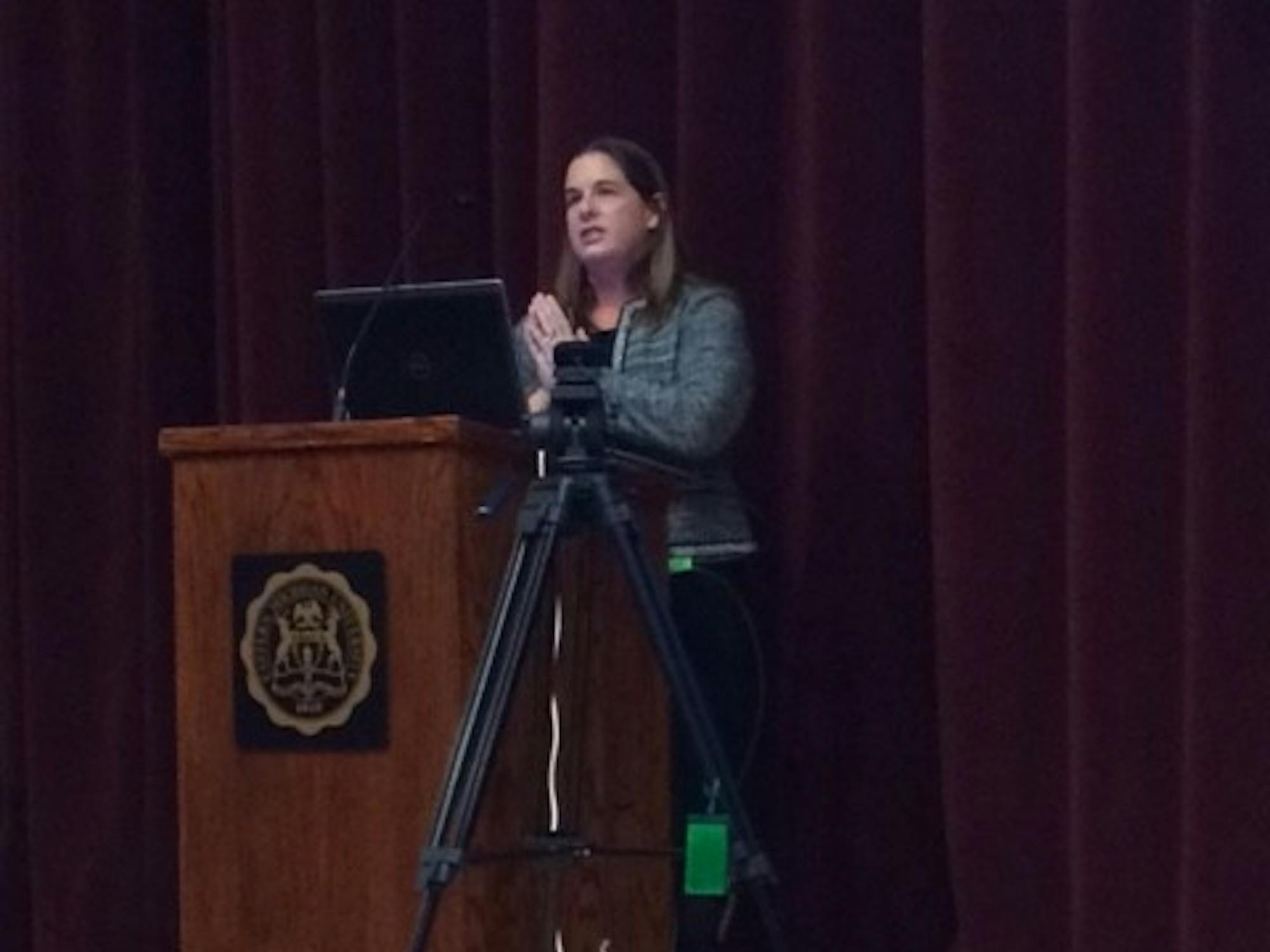Dana Dolinoy, Ph.D., associate professor of nutrition and environmental health from the University of Michigan, presented her lecture "Your Epigenome: DNA is not Necessarily Your Destiny" Thursday at the Student Center.
The lecture is a part of EMU’s annual George Liepa Sigma Xi speaker series which is inspired by former EMU professor of nutrition, George Liepa.
Dolinoy discussed with the 100 attendees the effect that environmental exposure, chemical, nutritional and behavioral factors have on gene expression and health. She also focused on the harmful effects of common compounds such as bisphenol A.
Dolinoy said she feels that many can benefit from learning more about epigenetics.
“I want people to understand how the environment, health and genes affect health through the epigenome,” she said. “The human genome project identified 20,000 protein-coding genes but it failed to identify how and when these genes were expressed.”
She focused on the chemical bisphenol A as a representative environmental chemical and measured it at multiple dosage levels while testing yellow agouti mice. She also used human clinical samples from the University of Michigan hospital.
She said that if we can identify dysregulated areas of the epigenome in the environment, nutrition can prevent negative epigenetic profiles.
She also touched on a study done on pre-adolescent Egyptian girls to measure Bisphenol A exposure and CpG methylation and the effects of multi and transgenerational inheritance. She highlighted how early pre-disposure can affect offspring.
“Epigenetic changes in the sperm can be passed down,” she said. “If your great grandmother started smoking in puberty, you are likely to die young. You can get an illness just because your grandparents had it.”
Dolinoy stressed having the right timing and dosages in pregnancy when it comes to having a healthy epigenome.
“It is important that pregnant and women of childbearing age take folic acid, it can help decrease the risk of birth defects,” she said. “Pregnant women are getting double the amount of dosage that they should. They are not only taking prenatal vitamins but other things, we don’t know what that is doing to our epigenome.”
Brianna Sohl, a junior majoring in biochemistry, said she was very impressed with the presentation and feels that more should take interest in this topic.
“I think that people can learn a lot from science, presenters make technical science more approachable instead of walking in the middle of a biochemistry lecture,” she said. “It’s an interesting look at epigenetics and ethical issues. I have heard about ethical issues but not the actual science. piRNA sounds really fascinating. I’m going to look that up at home.”
Penny Kuang, a senior majoring in chemistry, said she loved hearing new information.
“You get to hear things that you can’t get on the Internet or in class and it’s good to get the latest research,” she said. “When people say watch your diet, it’s not just now but it could affect future generations.”
Patrice Petersen, a musician and professor in EMU’s department of music, said she found the lecture to be fascinating and could relate to some of the information. She has a connection with George Liepa through her daughter’s friendship with his daughter.
“It was really interesting,” she said. “I have read a little about BPA’s but it was nice to hear an explanation. I can relate to when she said to take supplements in moderation because my doctor told me the same. Doctor’s don’t like to say that supplements will do anything. It was nice to hear someone say it’s important.”










